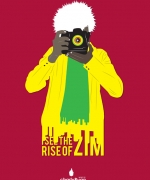Need for Change of the Zimbabwean Mind-set
In this article I will be talking about the need for change of the Zimbabwean mind-set if we are to be sustainable and competitive in this new global village. I will be talking about Zimbabwean thinking but with relation to Afrika as a whole. After living in Europe for a while you get to experience a different way of thinking and I have come to realise that we Zimbabweans generally think and handle certain situations differently from Europeans. The mind-set we have has both a positive and a negative impact on the nation, I will be discussing the latter.
Firstly I like to discuss how people in Zimbabwe choose their profession. I feel that most young school leavers are not selecting their future careers for the right reasons. One should pick a profession not from pressure from parents or what everyone else is doing, but because of passion for what you want to do with your life. This in turn will create a healthier work environment, more productivity benefiting the individual and the nation. An example is the Development/NGO sector which I am involved in. Some of the highest paying jobs in Zimbabwe are in the NGO sector which can pay salaries of up to a $1000/month or more. Civil servants are getting about $300/400 per month with the average salary in Zimbabwe at about $250/month, making the NGO sector very attracting to school leavers. What is happening now is students are flocking to universities and colleges to do Development Studies, not for the passion of wanting to bring development to Zimbabwe but for the high salaries. This has left the development sector too competitive and over flooding with graduates. There are not enough jobs in the sector to accommodate all these graduates therefore increasing the number of unemployed graduates in Zimbabwe. Some who do end up in development jobs find themselves without the passion or drive to do the jobs effectively. I believe that for development to be successful on the ground it has to start with the development of the mind. In this line of work, passion has to be present for development to be successful.
It is not only the development sector that is being affected, the medical and police sectors to name a few. Straight A students are being pressured by parents into doing medicine due to the status it holds and the high salaries. This profession may not be the preference of the child, therefore we breed doctors and nurses that are unhappy in their jobs (though the salaries are high) and lack that care one should have when dealing with vulnerable people. There are reports of high number of applications to join the police force, especially traffic police. Most apply because they feel they do not have many options and believe that is where the money is. Traffic police have been known to take bribes on the road therefore increasing their income. The point I am trying to get across is one should study and work in the area that they have a passion for to ensures the work is done effectively.
Zimbabweans have a strong urge to be entrepreneurial, but I feel that we are not innovative enough and rely on a ‘copycat’ syndrome which is rampant in the country. We tend to follow the current trend rather than engage in viable businesses we have knowledge in and capacity to engage. An example is the transport sector which was privatised in the late 1990’s. Individuals purchased buses and kombis (mini buses) and were handed permits to serve the public. The initial people who ventured into the transport sector were very successful. In the years to follow anyone who could afford to buy a vehicle ventured into transport, even the diaspora who had left to work abroad wanted in. Now there is an over abundant number of kombis and haulage trucks found in our major cities and towns. There is chaos in the cities, especially Harare, with too much traffic and kombis block the roads near rank stations. Ranks like Coppa Cabbana, Fourth Street, Market Square in Harare, kombis form long queues that hinder the flow of traffic and can wait up to 4 hours for the next load. Kombi drivers also have a reputation for fast, dangerous driving to increase their loads per day and are responsible for a lot of traffic accidents and road deaths. Supply has become more than demand making the sector non-profitable.
Another example of the copycat syndrome is in agriculture. The number of tobacco farmers has been increasing significantly in the last 4 years. Initially the odd farmer grew tobacco fetching high prices of up to $5,94/kg. Small scale rural farmers were making fairly high profits which improved their livelihood. Now in 2014, nearly everyone in rural Zimbabwe wants to grow tobacco. 2013 registered the highest tobacco production since independence leading to the reduction of tobacco prices to about $3.17/kg. It is another classic case of supply exceeding demand, also to mention the high amount of deforestation in tobacco regions from farmers using firewood from forests to cure their produce.
This is already leading to mass environmental destruction with Zimbabwe predicted to be semi-arid desert by 2025 if this continues. In this case farmers could simply grow other cash crops like paprika or cotton to name a few. Zimbabweans need to learn to venture into projects and business that are suitable, profitable, environmentally friendly and most of all sustainable.
The amount of litter in our cities/town, especially Harare is overwhelming. Zimbabweans generally do not have a tradition of putting litter into bins and there seems to be a culture of illegal dumping, especially in squatter areas (Epworth, Hopely farm) and other newly built areas where the bin collection services have not commenced. Zimbabweans do not hesitate to litter with their rational being someone will come and sweep the streets, throwing litter into the forest is normal practice because no one lives there. We need to enforce a culture of binning litter and putting waste where it belongs. In this era of sustainable development, waste is considered a resource. Recycling of paper, glass and metals should be introduced by the city/town councils to reduce the amount of waste going to landfill. Biodegradable waste can also be used to make compost for agriculture or bio gas which can be used for cooking. Awareness campaigns should be increased to change the mind-set, measure should be put into place to punish litterers and those who practice illegal dumping.
Zimbabweans need to start living a healthier lifestyle, leading to a better quality of life and higher life expectancy. As much as we love eating out traditional foods, I feel that we are not eating a proper balanced diet and lack exercise. Health issues like strokes, heart attacks, high blood pressure are on the rise. High amounts of cigarette and alcohol consumption, fattening braai food, large amounts cooking oil in relish (for better taste), carbohydrates from sadza, potatoes, rice and pasta are all root causes. In Zimbabwe it is acceptable for one to gain weight, they say it is a sign of ‘good living’. People do not realise that your metabolism and digestive system slows down in your 30’s therefore one should adjust their habits. We need to change this mind-set and realise as one gets older, slower and lazier, it is advised you adjust your eating habits and exercise more to keep yourself healthy. Drinking and driving another issue we need to adjust our minds to. With no limit to the amount one can drink before driving or presence of traffic police after 6pm in most places, we are living in a society of high risk. Countless people have died on our roads as a result of dangerous drunk drivers. More campaigns need to be done to make people aware of the consequences, more night patrols need to be introduced to catch offenders and hold them accountable. We need to change our mind-sets to care more about the next person, resulting in a united and safer nation.
Sustainable Development should be introduced in schools, colleges and universities. This is so that Zimbabwe can have a generation that is responsible for looking after our environment and resources for today and the future. Presently I feel there is no sense of sustainability in both rural and urban areas. Most Zimbabweans live for today and rarely think about how their descendants will cope in the future as a result of today’s practices. Myself and other passionate people are on a mission to change the mind-set of Zimbabweans towards a more sustainable livelihood. I have made this my purpose in life, door by door, person by person, country by country, Zimbabweans, Afrikans and the world as a whole must start to appreciate more our blessed earth and all in it. There is only one earth, so live for today with a thought for those that will live tomorrow.




